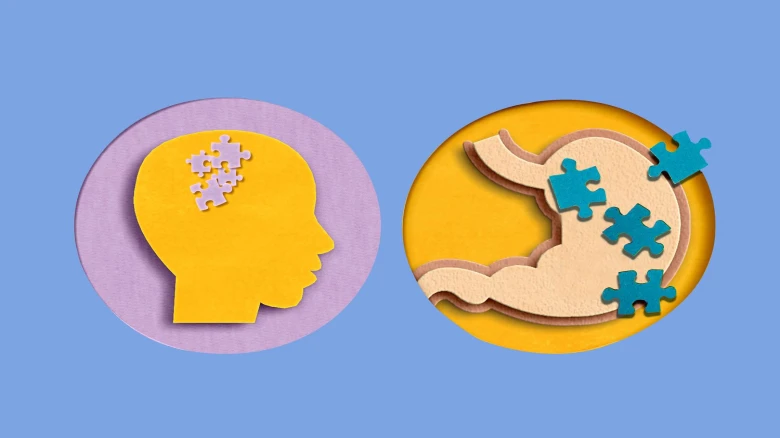Sports

The expert explained how probiotics, stress reduction, and toxin avoidance can all help to maintain a healthy gut.
color:black">
color:black">Digital Desk: There's no denying that our gut health affects our
overall health. Gut health begins when we chew our meal and continues until it
is eliminated. Each organ participating in this process has a unique role in
intestinal health.
color:black">It effects our mental health via the gut-brain axis, among other
things. The microbiota creates neurotransmitters and communicates with the
brain, which influences mood and emotions.
The gut-liver-brain axis
is a complex communication system that comprises interactions between the gut,
liver, and brain - all of which affect our well-being, according to Dr
Sukhvinder Singh Saggu, Director, Minimal Access, GI and Bariatric Surgery at
CK Birla Hospital.
color:black">"Imbalances in the gut microbiota can disrupt
neurotransmitter production and contribute to mental health disorders such as
anxiety and depression," explained Dr Sukhvinder Singh Saggu to
IndiaToday.in.
color:black">The liver, a crucial component of our gut health, communicates
with the brain to execute a variety of duties.
"The gut-liver-brain
connection allows these organs to influence each other's function by allowing
bidirectional communication through neural, hormonal, and immune
pathways." Through this axis, gut health influences liver function and
mental health." In reality, gut health is critical for liver function
because the gut microbiota, a colony of microorganisms in the gut, influences
liver health and metabolism.
Also Read: 6 foods that will help you have a good night sleep
color:black">According to the expert, "unbalances in the gut microbiota
can result in intestinal permeability, or 'leaky gut,' allowing harmful
substances to enter the bloodstream and affect the liver, possibly resulting in
inflammation and liver damage."
color:black">Additionally, the gut microbiota takes part in the metabolism of
bile acids, which is crucial for healthy liver function and fat digestion.
color:black">The expert explained how probiotics, stress reduction, and toxin
avoidance can all help to maintain a healthy gut.
"A ruptured gut
health can lead to digestive issues (bloating and diarrhoea), liver dysfunction
(fatigue and jaundice), and mental health disorders (anxiety and depression)
may indicate a disruption in the gut-liver-brain axis," said Dr.
Sukhvinder Singh Saggu.
color:black">According to IndiaToday, Dr. Randhir Sud is the head of
gastroenterology at the Institute of Digestive and Hepatobiliary Sciences in
Medanta, Gurugram.suggests that changes in the gut microbiota may set off
immunological reactions that impair brain activity and result in mood disorders
including anxiety and depression.
color:black">"Unbalances in neurotransmitter production and gut-brain
connection can exacerbate mental health problems. As a result, maintaining a
healthy gut-liver-brain axis is essential for both mental and liver health,
according to Dr. Randhir Sud.
Medical evaluation is
required for diagnosis, including evaluations of the intestines, the liver, and
the patient's mental state.
HOW TO KEEP THE GUT
HEALTHY?
color:black">
Gut
microbiota equilibrium can be restored by taking probiotic supplements or
eating meals high in beneficial bacteria. Prebiotics, like dietary fibres, can
encourage the development of good gut flora.
color:black">To maintain gut health and liver function, one must also adopt a
balanced diet that places an emphasis on whole foods, fiber-rich fruits and
vegetables, and a reduction in the consumption of processed foods and sugars.
color:black">Additionally, stress-reduction methods including meditation,
exercise, and relaxation can promote the gut-liver-brain axis by lowering
stress levels.
Dr. Randhir Sud claims
that keeping a healthy gut, fostering good liver function, and encouraging
mental wellbeing all depend on staying hydrated and refraining from using
antibiotics excessively.
According to the expert, in some
circumstances, doctors may recommend medications to treat particular gut or
liver issues in order to restore balance and enhance general health.
The gut-liver-brain axis can be
balanced again with the use of mental health interventions like counselling,
counselling, and stress management approaches.
Leave A Comment